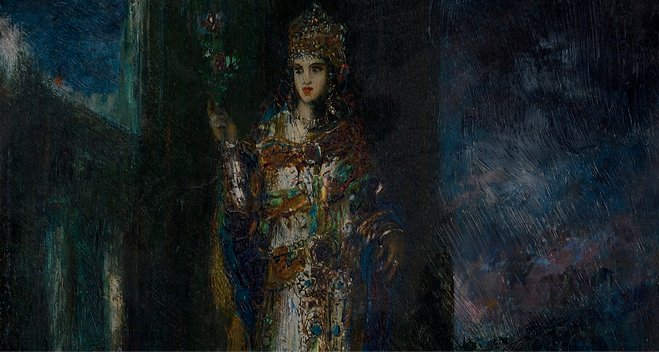
It is a hot summer evening from where I am writing, the numbers have been going above thirty degrees these past few days and I thought it would be an offense to such a warm, sensual season to engage in some overly intellectual narrative - it is a season before the abundant autumn - and as such, either a period of work in the fields, afternoon sweet-do-nothings or summer evening/nights nostalgic, contemplative and soft conversations. We have lost, having calendars and clocks, to live in harmony with seasons, I had written quite a while ago about it - to return to life that follows seasons is to return to not simply nature or any other kind of "gentle savage" fetishism, by living with season, human also lives in harmony with the cosmos that surrounds him.
It is a cliche that we hear almost daily how overwhelmed we are with information and data - we constantly swallow things we do not even allow ourselves to digest, the things pile up, and we only look forward to vomitting everything we had consumed onto someone else - a friend, a coworker, a girlfriend, a boyfriend, anyone, becomes the one who has to hear our new collection of information. Slowly, conversations become nothing but exchange of that which had been seen on social media or read on the news. There is rarely the exploration that can happen through genuine conversation, we do not converse - we just endlessly agree and disagree.
Very often, in attempt to fight this kind of shallow consumption, the other sort of people appear - those who pride themselves in the serious literature or non-fiction they read. Indeed, reading can be a wonderful habit, books can open entire new worlds - but if all that is done is reading, without interacting in the world, even the most quality of the books become just another collected information. I shall not quote anything directly from the books for a contemplative essay like this one, rather paraphrase something from "Zorba the Greek", written by Nikos Kazantzakis. When the pretentious intellectual comes to the small village and speaks to the local, he among other things mentions that reading and the local tells him: "Human is a wild beast and wild beasts do not read." Reading even the most beautiful of work can be a form of escapism, of the fear of life and there is no fear that is as sad to see on a human face as this one. It is astonishing what humans will do to avoid life - yet life is so rich, so unpredictable and amazing that no fiction, no film, no art can ever catch the mystery that is life. We often wonder at our dreams, thinking they are no linear and make no sense, and yet if we put our lives on a film track, event after event, many of them would seem completely disconnected, even absurd. Our minds often cannot grasp anything that is not shown on a linear track of time and that is how we form our memories too - we sort events and when we look back, they make perfect sense to us, yet our memories are rarely entirely accurate, and we are prone to subjective, emotive filtering of the memories.
The summer often seems to me to exist in a vacuum - between the abundance of spring and autumn. In the summer, the normal routines are off, the vacations happen, the empty streets during the highest heat, the short summer flings, trips - it is a season when life is in full potency and as if signals, that it ought to be experienced. Its slumber and sensuality, the dreaminess of its afternoons reminds that experience is more important than books - reading without experience of life only creates noise, we mistake someone else's thoughts and ideas for ours, and we think we know something, and yet, once among people and the world, the avid, introverted bookworm may find himself (or herself), unprepared for life. When we experience life in all its fullness - love, hate, joy, sorrow, disappointment, we can place the things we read, fiction or not, into a real context - quality literature becomes even more beautiful when we have lived through the things characters did too, theoretical books we read only become something that can give us ideas if we are connected to life. I would say, that, in that case, even reading itself may be experience rather than pure consumption of data.
We ought to defeat the fear of life within each of us - we humans are such that we often fear that which we like the most. Even when we are sorrowful and feel defeated, it is often because we do not live enough - we feel trapped because life happens, and we seem not to take part in it. Life happens even in an era of the screen, even when we have to stay in our homes because of the pandemic, no matter the circumstances, the juice of life can be felt, seen, tasted at any moment, because it is within us. Summer is a reminder that body has its own intelligence and that it often understands better than the mind, the sleepy laziness that catches us on a warm summer afternoon, tells us that it is time for the mind's narratives to ease down and for a more primordial, natural, perennial intelligence to come.


Comments